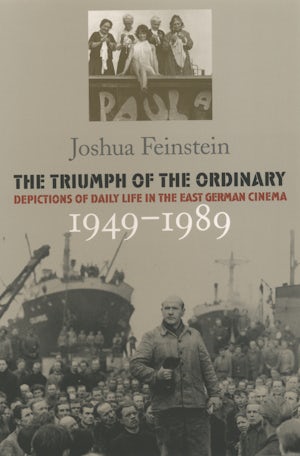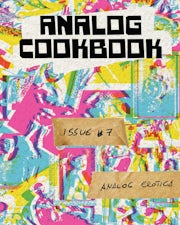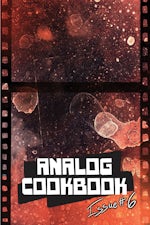The Triumph of the Ordinary
Depictions of Daily Life in the East German Cinema, 1949-1989
By Joshua Feinstein
352 pp., 6.125 x 9.25, 20 illus., notes, bibl., index
-
Paperback ISBN: 978-0-8078-5385-6
Published: September 2002 -
E-book EPUB ISBN: 978-0-8078-6145-5
Published: November 2003 -
E-book PDF ISBN: 979-8-8908-7224-1
Published: November 2003
Buy this Book
- Paperback $55.00
- E-Book $29.99
Drawing on newly opened archives as well as interviews with East German directors, actors, and state officials, Feinstein traces how the cinematic depiction of East Germany changed in response to national political developments and transnational cultural trends such as the spread of television and rock 'n' roll. Celluloid images fed a larger sense of East German identity, an identity that persists today, more than a decade after German reunification. But even as they attempted to satisfy calls for "authentic" images of the German Democratic Republic that would legitimize socialist rule, filmmakers challenged the regime's self-understanding. Beginning in the late 1960s, East German films dwelled increasingly on everyday life itself, no longer seeing it merely as a stage in the development toward communism. By presenting an image of a static rather than an evolving society, filmmakers helped transform East German identity from one based on a commitment to socialist progress to one that accepted the GDR as it was.
About the Author
Joshua Feinstein has taught European history at Stanford University and Emory University. He lives in Buffalo, New York.
For more information about Joshua Feinstein, visit
the
Author
Page.
Reviews
"An extremely well-researched book. . . . [This] multilayered analysis . . . is a remarkable feat of historical contextualization."--Monatshefte
"A substantial contribution to the fast-growing literature on East German cinema. . . . [This book] opens out into wider issues: to the role of culture within repressive regimes, to a re-examination of Cold War myths, and towards a more inclusive history of German cinema."--Journal of Contemporary History
"Illuminates the way in which communist state institutions attempted to control artistic practice and also used public debates about the films to signal shifts in political or cultural policy. The excellent bibliography and a good introductory filmography are useful for both undergraduates and advanced scholars."--Choice
"[The Triumph of the Ordinary: Depictions of Daily Life in the East German Cinema] is highly recommendable reading for anyone interested in learning more about the 'other,' undeservedly ignored, New German Cinema and the historical circumstances that made it possible."--H-German
"Triumph of the Ordinary is a well-written and scrupulous account of the East German film industry in its heyday and contains several thoughtful and insightful analyses of major films turned out by DEFA."--Central European History
"An original and engaging exploration of East German cinema and the role of cultural production and consumption in the evolution of postwar socialist society. Feinstein's film analysis is elegant and persuasively demonstrates that questions of cultural politics and film aesthetics are central to both the processes of national self-definition and the problems of political authority and legitimacy."--Heide Fehrenbach, Northern Illinois University




